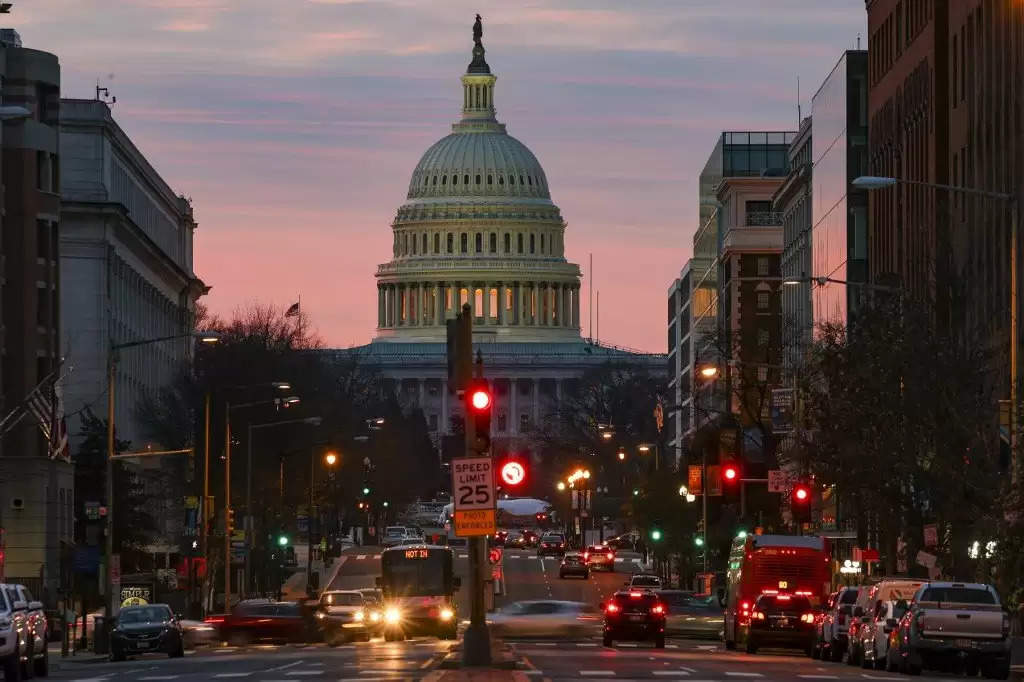As hospitals are strained by Omicron, a top US specialist warns against complacency.

Despite indicators of lesser severity, top US infectious disease expert Anthony Fauci warned against complacency about the Omicron type of the coronavirus on Wednesday, warning the sheer number of cases could strain hospitals.
The rapid spread of Omicron has disrupted life across the country, causing school to reopen after the holidays, suspending air traffic, closing entertainment venues, and throwing a monkey wrench into back-to-work plans.
On Tuesday, the rolling seven-day average number of new Covid-19 cases in the US reached 540,000, a new high for the eighth day in a row. Covid patient hospitalizations have increased by 45 percent in the last seven days, to over 111,000, the highest level since January 2021.
"(Omicron) might still put a strain on our hospital system," Fauci said at a White House briefing, "because a certain proportion of a big volume of illnesses, no matter what, will be severe."
Staff at a tiny community hospital in Ohio, which has the second-highest per capita rate of Covid-19 admissions in the US behind Delaware, said they are trying to manage with the flood of patients.
According to hospital workers, some patients have remained in the 12-bed intensive care unit (ICU) at Western Reserve Hospital in Cuyahoga Falls for as long as six weeks, with the majority appearing to be suffering from the Delta variety.
According to Susan Straus, the hospital's critical care director, patients as young as 30 are on ventilators, and three patients have died in a day on many times in the last few months.
Doctor William Paster estimated that about 80% of Covid patients at the hospital were unvaccinated, while ward nurse Jodi Parsons estimated that nearly all ICU patients were unvaccinated. Most people who are vaccinated, including those with underlying health problems, survive the infection, according to Paster.
"We've never seen numbers like these before, and it's really overwhelming," said Justine Neuwirth, a hospital respiratory therapist.
Increasing hospitalizations are also putting a strain on other states. Hospitalizations reached a new pandemic high on Tuesday, prompting Maryland to declare a 30-day state of emergency.
According to a Reuters count, national deaths have remained stable at over 1,300 per day on average.
TROUBLE IN SCHOOL
Because of Omicron's quick spread, many businesses and schools have had to rethink their preparations for returning to work and classrooms.
While most public school districts around the country reopened this week after the holidays, cities including Milwaukee, Atlanta, and Detroit used online instruction or postponed back-to-school because of staff shortages and Omicron issues.
Due to a dispute with the teachers' union, administrators in Chicago, the nation's third-largest school district, suspended classes on Wednesday.
After the union voted late Tuesday to return to remote learning and pushed for more stringent safety standards, including testing and mandatory vaccines for children, the decision was made.
Officials in Chicago, including Mayor Lori Lightfoot, have pushed to keep classes open, citing low hospitalization rates among the city's youngsters and the negative impact that distance learning may have on minority and poor pupils.
The Chicago Teachers Union has asked its members to stay out of the classroom and work remotely until Jan. 18, or sooner if the city meets minimum health-safety criteria established last year as a requirement for in-person instruction.
Halle Quezada, a third-grade teacher in Chicago who has two children in the system, ages 4 and 6, is angry that the district has not done more to address the virus's hazards.
.png)